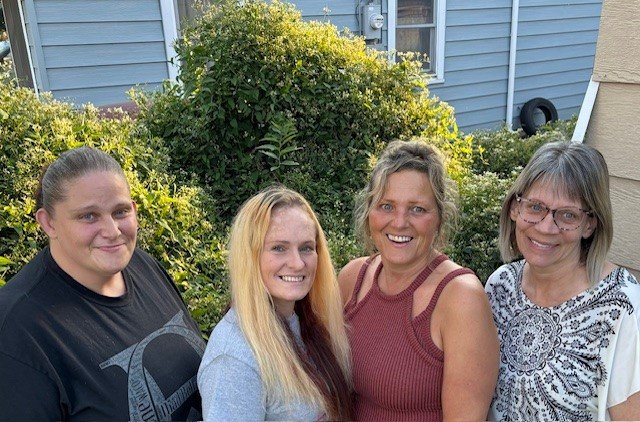Sharr Hamby and Charla Schneider acknowledge they weren’t good parents when their children were young. Drugs and alcohol were the reason.
But today, both Great Bend women are committed to finding ways to prevent their kids from making the same mistakes they did, while helping others in the community along the way.
Hamby, 39, and Schneider, 51, are recovering addicts who recently attended the National Drug Endangered Children (DEC) Conference at Kansas City, Mo. They are peer navigators for Rise Up Central Kansas, a task force under the umbrella of Central Kansas Partnership.
Both refer to the DEC conference as “life-changing.”
“When I look back at what I put my kids through and what my daughter is putting my grandson through, I want to do everything I can to stop the cycle,” Hamby commented. “Addiction runs in my family and my brother died from it.
“The conference lit another fire under me to find even more resources to give my daughter and her son a chance.”
Schneider noted that addiction runs in her biological mother’s family but emphasized that “my adoptive parents were wonderful.”
Her background parallels that of Hamby’s in many ways, including incarceration.
Schneider has been in and out of jail for a total of three years and Hamby for nine years – all because of drugs and alcohol. Hamby is an alumna of the local Oxford House, where Schneider was a resident for several weeks.
“I know it is hard raising teens,” Schneider commented. “But Sharr and I might be able to help. We are here for parents who have checked out on their kids.”
Schneider made special note of parents who give a child a drink at a young age. “This is not good anytime but if you have addiction running in your family, this can be a real problem. It is not fair but that’s the way it is.”
Amy Ferguson, director of Rise Up Central Kansas, agreed with Hamby and Schneider that addiction is generational; Ferguson also is in recovery.
She invited Hamby and Schneider to the three-day DEC conference because “they connect with people who have substance-use disorder. Others can benefit from their experiences; they are trusted voices in the community.”
The conference was “powerful” to Ferguson in many ways but she took special note of the quality of presenters and sponsors.
“A lot of them are in recovery or have a family member in recovery,” she said. “They knew what they were talking about.”
Ferguson and Vicki Richardson were presenters for a session called HOPE for Generations. Richardson is the local family engagement coordinator for the Kansas Children’s Service League. HOPE stands for Healthy Outcomes through Positive Experiences.
Richardson and Ferguson also present a class locally; it is called Creating Resilience Through Connections. “Since toxic stress affects a child’s developing brain, we focus on building resilience that can change the child’s outcomes,” Ferguson noted.
Marissa Woodmansee, director of Juvenile Services, applied for the grant that helped finance participation in the conference. It is a two-year, $65,000 grant awarded by the Kansas Alliance for Drug Endangered Children, in partnership with the Kansas Department of Health and Environment.
“Those of us at Juvenile Services do all we can to support Central Kansas Partnership and Rise Up Central Kansas,” Woodmansee said. “True grassroots efforts make a real difference.
“They show families that Juvenile Services is a great community resource. If we can work with families on early intervention maybe children don’t ever have to enter the juvenile justice system.”
20th Judicial District Juvenile Services empowers youth in Barton, Rice, Ellsworth, Stafford and Russell counties to achieve positive outcomes by offering Juvenile Intake & Assessment, Immediate Intervention, Intensive Supervised Probation, Case Management, Journey to Change, Life Skills, All Stars and Youth Crew. Parents and guardians also are offered The Parent Project. Visit 1800 12th in Great Bend or call 620-793-1930.





